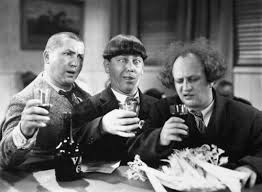I started reading significant Supreme Court rulings last year with the
Obamacare ruling. Luckily there hasn't been another ruling I felt compelled to read... until the
DOMA ruling in June. A layman's opinion is
only mostly useless, but I persist because I want to read and critique the arguments that the justices make.
Majority opinion
The majority opinion spends pages 4-13 justifying taking the case. I readily see how it was justified, since the issues were about due process and especially equal protection. That sounds constitutional to me. After all the justifications, the majority finally indicates its decision at p.20. It threw out section 3 of DOMA for violating equal protection and due process. The 5 to 4 majority is rather harsh about the objectives and motivations behind DOMA:
"The avowed purpose and practical effect of the law here in question are to impose a disadvantage, a separate status, and so a stigma upon all who enter into same-sex marriages..." p.21
The majority, beyond using the words "disadvantage" and "stigma," also labels DOMA's intent or effect as to
demean,
humiliate,
degrade, and
disparage the
unworthy,
second class marriages. However, this isn't just the majority's interpretation. When the House passed DOMA, it did so to express, in the House's own words:
"...both moral disapproval of homosexuality, and a moral conviction that heterosexuality better comports with traditional (especially JudeoChristian) morality." p.21
The majority makes a strong argument for its equal protection ruling:
"DOMA’s principal effect is to identify a subset of state sanctioned marriages and make them unequal." p.22
Their argument is: what the states have determined should be equal, the federal government has tried to undo. That sounds like a clear violation of equal protection to me. Not everyone agrees...
Scalia dissent
Scalia rips into the majority. First, he argues for pages why the Court shouldn't have taken the case, while ignoring all the reasons it should have. Though there were clearly constitutional issues, Scalia claims that the Court can only make such interpretations when it has a case it must settle, regardless of how many other obvious cases on the same issue might be out there (p.2). He would have liked the case to stay out of court until there was a GOP administration that would enforce DOMA and defend it whole-hog. If Obama thinks DOMA is unconstitutional, he just shouldn't enforce it. (Then we could have the nauseating whiplash of DOMA rules changing every four or eight years. But that's not a reason to hear the case now, according to Scalia.)
Scalia does correctly point out that DOMA could be construed as having a positive purpose--consistency of federal response to marriage (p.20). He errs by imputing only good intentions to DOMA, but he shows that the majority errs by imputing only nasty intentions.
Scalia makes a slippery slope argument that the Court will next make same-sex marriage legal in all states, imagining the exact words the Court could use to force same-sex marriage on all states (p.23). Having divined what (he thinks) the majority wants, he then uses the harshest language in the entire decision, but projects it onto the majority:
"[the] Court ... finds it so horrific that Congress irrationally and hatefully robbed same-sex couples of the 'personhood and dignity'... By formally declaring anyone opposed to same-sex marriage an enemy of human decency, the majority..." p.24
Wow. I thought the majority emphasized the unfairness a bit too much, but Scalia saw their bet and went all in. I don't think the majority declared that those who are against same-sex marriage are devoid of human decency, but it must be so because Scalia says it is.
Scalia doesn't bother to discuss the equal protection considerations. That seems to be the crux to me, and hard to defeat, so it's no wonder he doesn't touch it.
The most quoted part of Scalia's dissent was his labeling of the majority's reasoning as "argle-bargle" (p.22). No Scalia dissent is complete without some sort of ridicule of the majority's line of reasoning, but the "argle-bargle" quip wasn't nearly the worst of it.
Alito dissent
Unlike Scalia, Alito spends most of his dissent grappling with the question of equal protection. At times, he's just dismissive: "that framework is ill suited for use in evaluating the constitutionality of laws based on the traditional understanding of marriage" (p.10). He spends a long time on
classifications and
scrutiny questions relating to which classes deserve "equal protection" and which don't.
At the end, he lauds the majority's emphasis on letting states decide. Then for no reason I can see, he blithely skips over equal protection considerations. Sorry folks, no equal protection for you. Still, he "respectfully dissents," in marked contrast to Scalia's fierce and disrespectful dissent.
Justice Thomas signed on to Scalia's dissent. Roberts thinks the Court shouldn't have taken the case, and dissents to any change in the law. By my score, 6 are OK, 1 is a wimp, and 2 are high-handed, insulting autocrats. If you disagree with me, ARGLE BARGLE!!!!
Image: quickmeme.com













